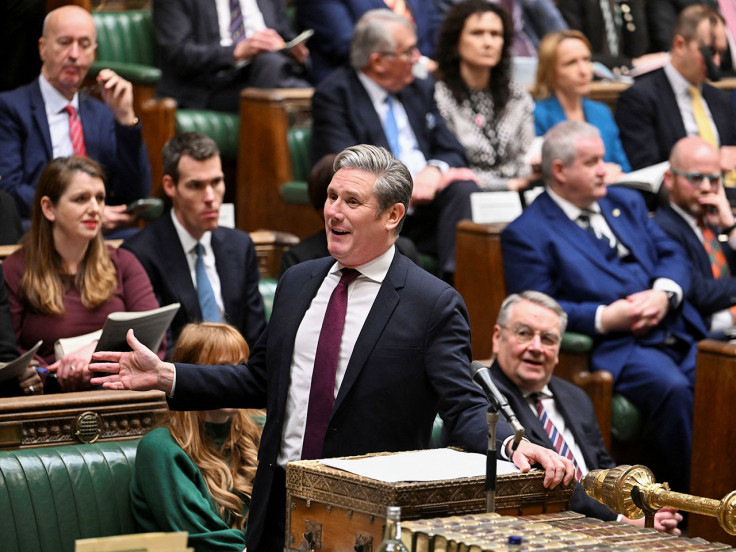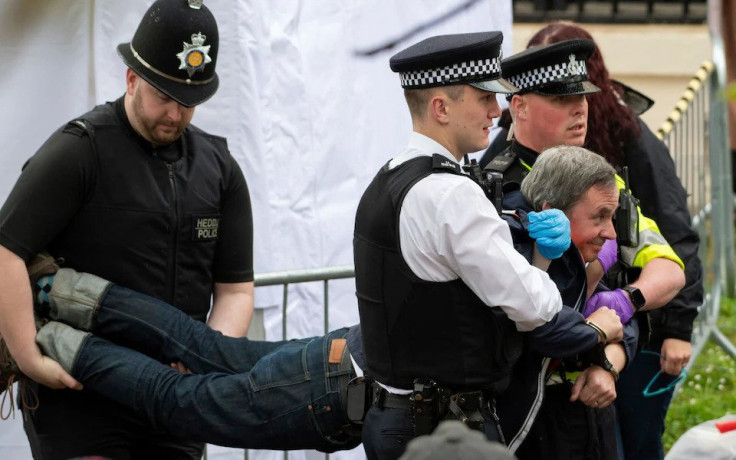Starmer revels in Sunak's election woes at PMQs
Throughout a fiery two-hour exchange with Prime Minister Rishi Sunak, the Labour leader seemed revitalised by his party's success in the local elections.

Watching PMQs today, you'd be forgiven for thinking Sir Keir Starmer had just won a General Election, not the locals.
Throughout a fiery two-hour exchange with Prime Minister Rishi Sunak, the Labour leader seemed revitalised by his party's success in the local elections last week.
The local council elections across the UK were billed as a crucial indicator of how the Conservatives and Labour will fare in the next General Election.
Recent polling had suggested the opposition Labour Party have built a double-digit lead over the Conservatives, with the party describing the municipal elections as a referendum on "13 years of Tory failure".
Sunak appeared to anticipate a heavy Conservative defeat in the lead-up to the elections, telling a think-tank event the day before that "good councillors will lose their seats because of all that has happened over the past year."
Sure enough, Sunak's prediction was well-trailed.
The Tories lost 48 councils and over 1,000 councillors to Labour, Lib Dems and the Greens. This included relinquishing key strongholds in Stoke-on-Trent and East Staffordshire to Labour.
In contrast, Labour won more than 500 councillors in the local elections, while the Liberal Democrats won more than 400.
As the results rolled in, Sir Keir Starmer was in a jubilant mood.
Addressing councillors and supporters in Chatham in Kent after a key victory on the Medway council, he said: "You didn't just get it over the line, you blew the doors off. The first victory here since 1998. An amazing, amazing set of results."
The Labour leader said his party was making gains in "all the places that we need to win the battlegrounds." He added: "We are on course for a Labour majority at the next general election."
Sir Keir continued his victory parade in today's PMQs session, landing several blows on Sunak regarding the recent local election results.
Referencing Sunak's defeat to Liz Truss in the Conservative leadership race last summer, he said: "He (Sunak) keeps entering a two-horse race and finishing third."
Starmer then moved on to cite predictions by ministers before the elections that the Tories could lose up to 1,000 seats, viewed by some as a deliberately excessive figure to manage expectations.
Poking fun at the estimate, Starmer said: "The prime minister said he was going to lose 1,000 seats and then he managed to. After 13 years, a Tory promise they actually haven't broken."
Sunak though, remained defiant despite his party's heavy defeat.
He drew upon recent comments by Tony Blair to offer Starmer a "tiny bit of advice" from the former PM, declaring that the Labour leader can be "as cocky as he likes" but "when it comes to a general election, policy counts." Further adding: "The problem for him (Starmer) is, he doesn't have any."

The topic of debate then shifted to the recent coronation, where the police made six arrests under the controversial Public Order Act.
Amendments to the act, which were unveiled by the government last week, meant police officers will no longer need to wait for protests to take place before shutting them down and will be able to target long-running campaigns.
As a result, on Coronation Day, half a dozen protestors were detained under suspicion of being equipped to "lock on" – a measure activists use to make it harder for police to move them.
Despite facing criticism for the manner of the arrests, the chief of the Metropolitan Police has defended the force's coronation behaviour and claimed crowds actually cheered the crackdown on protestors.
However, Sir Mark Rowley admitted it was "unfortunate" the demonstrators were unable to join fellow activists on Saturday following their detention.
In the Commons, SNP Westminster leader Stephen Flynn said protesting was a "fundamental right" and criticised the policing initiative at the event. However, Sunak thanked the police for their work during the Coronation and said police should have powers to protect the public from serious disruption.
Whilst politicians traded insults with each other in the Commons, a significant debate was also taking place in the House of Lords.
The government's "Illegal Migration" Bill - a key part of Rishi Sunak's plan to "stop" small boats crossing the English Channel - was being discussed.
The bill has previously been criticised for being "incompatible" with The European Convention on Human Rights. And with this in mind, the Archbishop of Canterbury attacked the proposed plans, saying they risked "great damage" to the UK's reputation.
Justin Welby said the Illegal Migration Bill would not stop small boat crossings, and it failed in "our moral responsibility" towards refugees.
Although he conceded existing international law was in need of updating, he said the bill represented a "dramatic departure" from existing conventions and would undermine international cooperation on the issue.
However, other peers spoke out in favour of the bill, including Conservative Lord Forsyth, who said he was "yet to hear" a solution to stop boat crossings from critics of the bill.
Despite agreeing that it needed further scrutiny, he claimed it was "not reasonable to criticise the government for trying to deal with this problem."
The government made a series of concessions to different sections of the Conservative Party to ease the bill's passage through the Commons last month.
Although peers did not vote on amendments during the debate today, it represented a chance for them to scope out support for possible changes to the bill at a later stage.
Labour peer Lord Coaker said his party would do "all we can" to change the bill at a later stage, vowing that they would not be "cowed" into accepting the verdict of the Commons.
The bill showed the government was playing "fast and loose with our place in the world, and our respect for international law," he added.
© Copyright IBTimes 2025. All rights reserved.






















